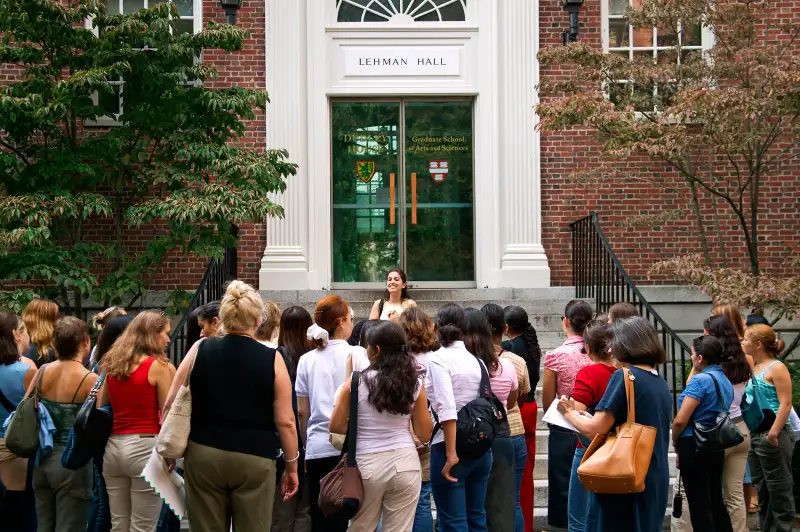The 4 Questions to Ask on a College Campus Tour

Campus tours are a carefully choreographed part of colleges' marketing efforts. But they're also a great opportunity for students and parents to push past the sales pitch and get the facts they need to make smart financial decisions.
So, in addition to sunscreen and comfortable walking shoes, bring along some serious questions for both college officials and your student guides. The latter, armed with actual experience attending the school, are an especially rich source of real-world information, on everything from which meal plan to pick (three-a-day or bare bones, if most students eat off campus) to which academic or extracurricular costs turned out to be surprising budget busters.
To get the financial scoop, be sure to include these questions.
How well have recent alumni fared in the job market?
Colleges' career services or admissions offices love to display lists of prestigious companies that have hired their grads, notes Francine Block, a college admissions consultant in Holland, Pa. But you'll learn more by asking to see job and grad-school placement data for the past five years—and finding out how many graduates the school actually tracks. A college may claim that 90% or more of its recent graduates are currently employed or working toward advanced degrees, but that figure may represent only a tiny fraction of alumni who responded to a survey.
How much does the college help with internships?
Find out what resources the college has to assist with internship placements, résumé preparation, and interview coaching. Also see if it offers financial support, such as travel stipends, for interns. Colgate University, for example, has a fund to subsidize students in low-paid or unpaid internships. Students can apply for a couple hundred dollars to cover their airfare or as much as $4,500 for summer living expenses in a costly major city. Other schools have similar, though not always as generous, programs.
Where do upperclassmen live, and what does it cost?
While your tour will probably stop by a freshman residence hall, you're unlikely to hear much about where students live for the other three (or more) years. Ask your guide if many of his or her friends live off campus and how much they pay in rent. This can help you double-check the college's estimates. Research from the University of Wisconsin at Madison found that a third of colleges gave off-campus housing projections that were at least $3,000 a year under the typical cost of living in that region.
Calculator: How much should I be saving for college?
How much can students earn by working on campus?
The hourly pay for campus jobs can vary from the federal minimum wage of $7.25 to more than $10. Phil Trout, a high school college counselor in Minnetonka, Minn., recommends that families ask about the average amount of work/study included in the school's usual financial package. Recently he's seen awards ranging from about $1,200 a year to more than $4,000.
For more advice on applying to college, visit the Money College Planner.

